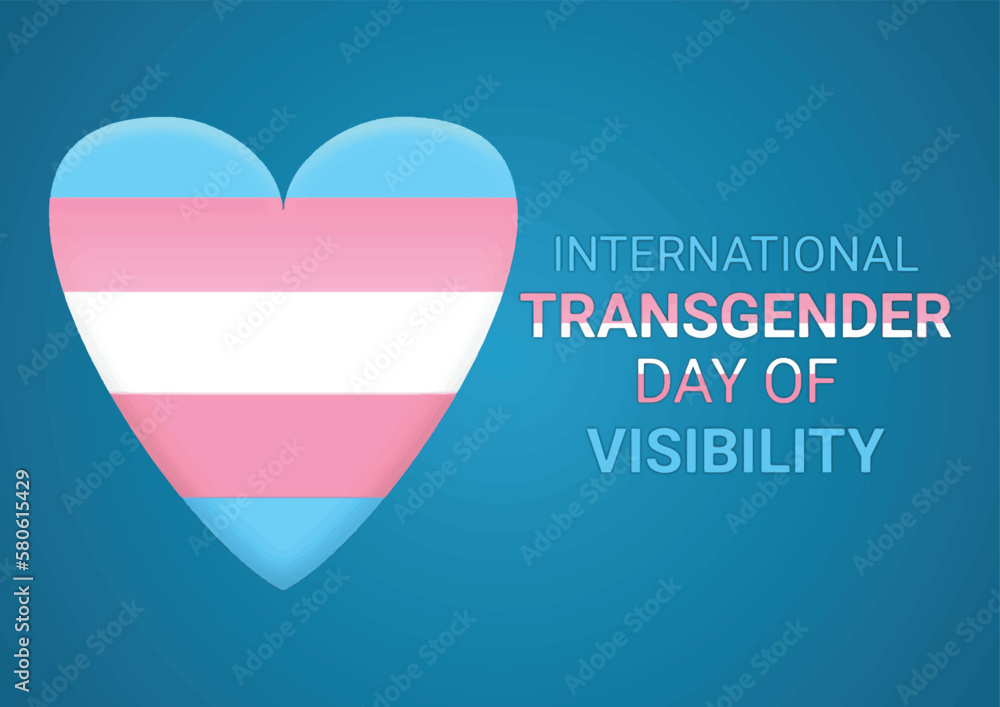International Transgender Day Of Visibility: 3 Ways To Be A Better Ally

Table of Contents
Educate Yourself on Transgender Issues and Terminology
Understanding the transgender experience is the foundation of effective allyship. It's crucial to remember that being transgender is incredibly diverse; it's not a monolith.
Understanding the Transgender Experience
It's essential to grasp key terminology. Gender identity refers to an individual's internal sense of being a man, woman, both, neither, or somewhere else along the gender spectrum. Gender expression is how someone outwardly presents their gender through clothing, behavior, and other means. Sexual orientation describes who a person is attracted to, which is independent of gender identity. Transition is a personal journey that may involve medical interventions, social changes, and legal name and gender marker changes.
- Resources for learning: Explore the wealth of information available from organizations like GLAAD, PFLAG, and The Trevor Project. Their websites offer educational materials, articles, and videos.
- Books and documentaries: Expand your understanding by engaging with personal narratives and insightful analyses. Seek out books and documentaries that share transgender experiences and perspectives.
- Importance of avoiding harmful language: Using respectful terminology, such as a person's chosen name and pronouns, is paramount. Avoid using outdated or offensive terms like "transvestite" or "tranny."
Recognizing Microaggressions and Bias
Microaggressions, seemingly small acts of discrimination, can have a significant cumulative impact on transgender individuals. These subtle yet hurtful actions often go unnoticed by those who don't have lived experience of this prejudice.
- Examples of microaggressions: Misgendering (using incorrect pronouns or names), deadnaming (using a person's former name), and asking invasive questions about their bodies or transition are all common microaggressions.
- Strategies for interrupting microaggressions: If you witness a microaggression, speak up respectfully but firmly. Educate the perpetrator about the impact of their words or actions.
- Importance of self-reflection: Regularly reflect on your own biases and prejudices. Actively work to unlearn harmful assumptions and stereotypes.
Advocate for Transgender Rights and Inclusion
Being an ally means actively working to create a more just and equitable world for transgender people. This involves supporting policies and creating inclusive environments.
Supporting Inclusive Policies and Legislation
Advocating for non-discrimination laws is critical. Transgender individuals face disproportionate rates of discrimination in employment, housing, healthcare, and other areas.
- Contacting elected officials: Reach out to your representatives to express your support for legislation protecting transgender rights.
- Supporting organizations: Donate to and volunteer with organizations fighting for transgender rights, such as the Human Rights Campaign (HRC).
- Participating in peaceful protests: Engage in peaceful protests and demonstrations to advocate for policy changes.
Creating Inclusive Environments in Your Community
Creating safe and welcoming spaces for transgender individuals requires proactive efforts. This involves advocating for change in various settings.
- Advocating for gender-neutral bathrooms: Support the implementation of gender-neutral restrooms and changing rooms in public spaces and workplaces.
- Challenging transphobic language: Consistently challenge transphobic language and behavior whenever you encounter it.
- Supporting transgender-owned businesses: Support businesses and organizations that are owned and operated by transgender individuals.
Listen, Learn, and Amplify Transgender Voices
True allyship involves centering the experiences and perspectives of transgender individuals. It's about listening, learning, and amplifying their voices.
Centering Transgender Experiences and Perspectives
Actively listen to and learn from transgender people. Don't assume you know what they need or want.
- Following transgender activists: Follow and engage with transgender activists and influencers on social media. Learn from their perspectives and experiences.
- Supporting transgender artists: Support transgender artists, writers, and creators by attending their performances, reading their work, and sharing their creations.
- Creating space for sharing: Create opportunities for transgender individuals to share their experiences and perspectives without feeling pressured or judged.
Practicing Allyship Through Action
Genuine allyship requires consistent effort and commitment. It’s not enough to simply express support; tangible action is crucial. Avoid performative allyship – actions done for show rather than genuine commitment.
- Donating to organizations: Donate to transgender-focused organizations that provide vital services and support.
- Volunteering your time: Volunteer your time and skills to support transgender causes and organizations.
- Educating others: Educate your friends, family, and colleagues about transgender issues and rights.
Celebrate International Transgender Day of Visibility and Beyond
This International Transgender Day of Visibility, let's commit to learning, advocating, and amplifying transgender voices. We've explored three crucial ways to be a better ally: education about transgender issues and terminology, advocacy for transgender rights and inclusion, and the amplification of transgender voices and experiences. Remember, transgender allyship isn't confined to a single day. Let's make every day a day of visibility and support for the transgender community. Let's build a future where every transgender person feels safe, respected, and valued.

Featured Posts
-
 Go Compares Wynne Evans Axed Following Strictly Controversy
May 10, 2025
Go Compares Wynne Evans Axed Following Strictly Controversy
May 10, 2025 -
 Transgender Equality In Thailand The Bangkok Post Reports On Increasing Advocacy
May 10, 2025
Transgender Equality In Thailand The Bangkok Post Reports On Increasing Advocacy
May 10, 2025 -
 Houthi Truce Announced By Trump Faces Shipper Doubt
May 10, 2025
Houthi Truce Announced By Trump Faces Shipper Doubt
May 10, 2025 -
 Sovmestniy Dogovor Frantsii I Polshi Makron I Tusk Obyavlyayut O Podpisanii
May 10, 2025
Sovmestniy Dogovor Frantsii I Polshi Makron I Tusk Obyavlyayut O Podpisanii
May 10, 2025 -
 Ivan Barbashevs Ot Goal Powers Vegas Golden Knights To Game 4 Win Over Minnesota Wild
May 10, 2025
Ivan Barbashevs Ot Goal Powers Vegas Golden Knights To Game 4 Win Over Minnesota Wild
May 10, 2025
